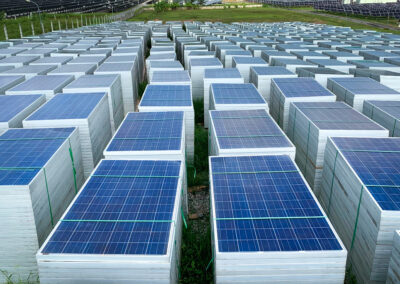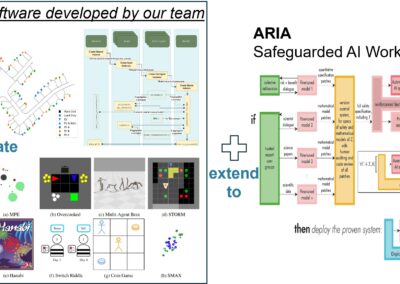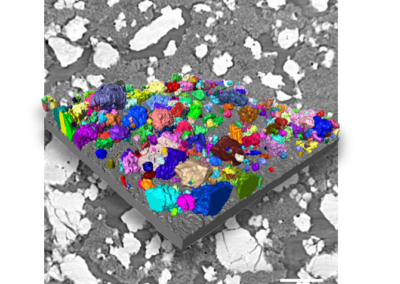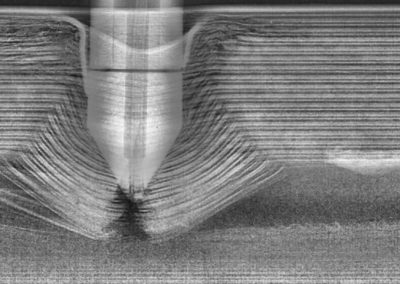Energy use encompasses a broad spectrum of activities oriented towards the services that energy provides for quality of life.
Energy use involves multiple sectors of the economy, particularly buildings, transportation, and industry. Our work focuses on the role that energy use plays in the transition to a zero-carbon world, and how this can be enabled by improving energy efficiency and reducing energy demand.
The goal is to lower energy demand, decrease environmental impact, and reduce energy production and consumption costs. In the building sector, for example, this entails adopting climate-responsive designs that address both mitigation and adaptation goals, creating a resilient built environment while minimising its carbon footprint. This approach integrates advanced materials and techniques to reduce energy demand, and smart control technologies to enable real-time monitoring and management to optimise usage patterns and reduce energy waste. In another example, in the transport sector, energy efficiency is pursued by promoting fuel-efficient transport modes and optimising logistics and travel patterns to minimise fuel use and emissions. In industrial settings, energy conservation is achieved by implementing more efficient manufacturing processes and recycling waste heat for other purposes.
Moreover, optimising lifestyle choices to and minimising consumption patterns while sustaining quality of life is a crucial aspect of energy use. This includes encouraging behavioural changes among consumers, such as adopting energy-saving habits, and creating robust institutional structures that can implement policies that promote the use of renewable energy sources and discourage excessive energy consumption. Together, this enables significantly reduced overall energy demand, lower greenhouse gas emissions, and action towards a more sustainable and resilient zero-carbon energy system.
Our Usage Case Studies

Boosting battery reliability for off-grid energy access
The Faraday Institution ‘MaxBatt’ project developed rapid diagnostics, ageing models, and screening methods for lithium-iron-phosphate ... Read more

Circular Electrical and Electronics Project
Enabling a low-carbon, Circular Economy for Electrical and Electronic Equipment that reduces the mining of rare, expensive and ... Read more

SAGEflex: Safeguarded AI Agents for Grid-Edge Flexibility
SAGEflex aims to develop a software platform for training, testing, benchmarking, and scaling up AI-based solutions to unlock power ... Read more

Project LEO (Local Energy Oxfordshire)
Project LEO demonstrated how local energy systems can accelerate the transition to a zero-carbon energy future through innovative ... Read more

Next Generation Battery Energy Storage
Energy storage is critical to decarbonization in a range of sectors. As we approach the limits of Li-ion technology, developing next ... Read more

The Science of Battery Safety
Battery energy storage is a cornerstone of de-carbonistation plans. Our research on the Science of Battery Safety is ensuring that ... Read more

Optimizing Energy Use in Universities: The Role of Digital Twins in Closing Performance Gaps.
How can digital twin technology and building energy simulations help identify performance gaps in operational buildings: a case study ... Read more

Energy Demand Observatory and Laboratory (EDOL)
EDOL collects and shares energy use data from UK households for research and policy to accelerate a successful zero-carbon future Read more
Our Research Areas
Generation
Conversion
Distribution
Storage
Usage
More from ZERO Institute

About the ZERO Institute
We want to shape the transition to a just and fair global zero-carbon energy system, through research that unifies technology, policy, and people.

Our People
The ZERO Institute is a multi-disciplinary hub for zero-carbon energy research, bringing together academics from across the University of Oxford.

Latest News
Catch up on the latest news and events to see how ZERO is driving the transition to a zero-carbon energy system.